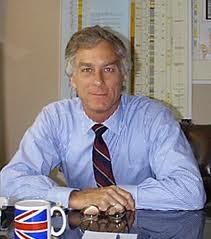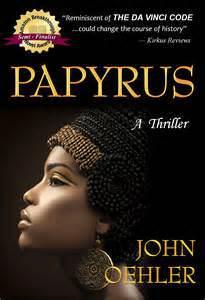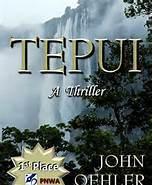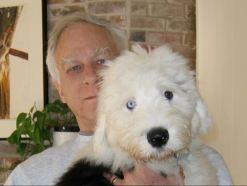
I love doing author interviews, especially for authors whose work I have read and enjoyed. Please allow me to introduce to you John Oehler. Below is an interview in which he was kind enough to participate.
1. I read Papyrus and Aphrodesia and was riveted by both. You have a knack for mystery and detail, whether historical or well-researched professions like perfuming. What inspired you to write these stories?
The initial idea for Papyrus came to me in 1983 when I was in the Egyptian Museum in Cairo and noticed a potential way for thieves to break in. Over time (by which I mean decades, because I was not yet a serious writer), the story concept expanded tremendously. The theft now occupies only a chapter and a half.
Interested readers can see my original sketch of the break-in route by going to http://johnoehler.com , pulling down Papyrus from the Novels tab, and clicking on Behind the Scenes.
Aphrodesia is another story that took years to mature. I first became interested in fragrances while living in London in the mid-80s. I started collecting perfume samples, perfume books, and articles on the psychology of scent. I wanted to write a story centered on fragrances but couldn’t think of an interesting plot — until I met a master perfumer in Versailles who told me that creating a true aphrodisiac is the Holy Grail of the perfumer’s art. I thought: Bingo! I can make a story out of an aphrodisiac.
As with Papyrus, you can read more about the origin of Aphrodesia on my website. Pull down Aphrodesia from the Novels menu, click on Behind the Scenes, and you’ll see two entries illustrated with photos of the master perfumer and of ISIPCA, the perfume school in Versailles where the story begins.
2. You got an Amazon Breakthrough Novel Award for Papyrus and First Place in the Pacific Northwest Writers Association for Tepui. How did you feel about being recognized so well on these novels? (Also, what’s your secret to success?)

As an aside, I have toyed with the idea of posting the original ending on my website. But beyond those who read this interview, very few people are even aware that the current last chapter was not my first choice.
Winning the PNWA competition was probably the biggest surprise of my writing career. It’s a major contest that attracts lots of agents and editors. I’d entered a thriller titled Tepui and received a hint that it might be a finalist. At the award ceremony, I was sitting at a big round table with my wife and about ten other people as the finalists were read off. When my name was announced as the winner, I blurted, “Are you shitting me?” The whole table laughed.
Perhaps the coolest thing was that this led to a role reversal. Like most unpublished writers, I’d endured years of frustration playing supplicant to the deaf gods of agentdom. Now, suddenly, agents were courting ME.
In the end, the agent I signed with turned out to be a poor choice. Several months into our relationship, she sold a YA fantasy for half a million bucks and a second YA fantasy for a quarter million. She lost interest in thrillers. On the flip side, I lost interest in agents and have been more than happy to self-publish ever since.
Secret to success? I’m certainly not as “successful” as I’d like to be. But I attribute my modicum of popularity to excellent teachers (like Chris Rogers) and critique partners I trust and respect. I strive to create unusual characters, take them to places most readers have never seen before, and keep readers guessing what’s going to happen next. I also try to engage all of the senses, to help readers feel like they are in the story, not just reading it.
3. I’ve posted reviews for Aphrodesia and Papyrus here on my blog, but I haven’t had the pleasure of discovering Tepui. Can you tell us a bit about it?
Tepui is the story of a burn-scarred botanist who treks into the remote Venezuelan highlands in search of a living fossil but stumbles onto something far more astonishing, and deadly.
This story stems from my work and travels in Venezuela and on the history of the region.
4. Tell us about your other writing ventures. What other brilliant ideas have you got up your sleeve? When can we expect to see your next book?

I’m not sure what will come after that. I’ve always loved old books and libraries. While visiting a monastery in Prague last Christmas, I spent an hour contemplating their library and especially their locked collection of forbidden tomes. I’d like to set a story in that environment. The idea might sound derivative of The Name of the Rose (one of my all-time favorite stories), but I would set it mainly in modern times.
In a similar vein, I’ve long wanted to write a story set in western Ireland during the Viking raids of the early 900s. It would center on a mixed male-female monastery with a round tower that serves as a repository for volumes rescued from the anti-intellectual book burnings of the Dark Ages. I’m torn between this and the Prague story. I don’t think I can do both, because there’d be too many similarities.
I’ve written parts of several other stories I’d like to expand if I live long enough. One centers on a powder created by an 8th-Century Arab alchemist (a real person) that extends life for centuries, provided you keep taking it. The story opens with the spectacular (true) robbery in 1976 of a bank in Nice, during which thieves spent an entire weekend looting safe deposit boxes in the underground vault. In my twist, the thieves were working for a woman who knew the powder and the alchemist’s formula were in one of the boxes, and that’s all she wanted.
Most of the others involve things like ancient mysteries and labyrinthine puzzles.
5. What got you started in the writing world? Have you always wanted to write or is it a passion you discovered later in life?
In high school I wrote poetry about society’s outcasts, some of which was published in a scholastic magazine. In college I occasionally ghostwrote sonnets for girls who were supposed to write them as a class assignment. Simple rhyming poetry always came easily to me.
What started me writing novels — or trying to — was hubris. In the late 70s and early 80s, I traveled internationally quite a bit and spent my time on planes reading Robert Ludlum novels. After a while, I thought: I can do better than that. In retrospect, I’m pretty sure my attitude came from the fact that (as he admitted later) his stories all had the same plot. So on that trip to Egypt when I got my initial idea for Papyrus, I decided to try my hand at writing a book. Little did I know.
Flash forward several years and I’ve finally finished my first version, a 240,000-word tome I called The Papyrus of Tiye. A friend of mine offers to take it home with him at Thanksgiving and show it to his mother, a vice president at Bantam. P.S. It came back with a note that read, “Tell him to take a creative writing class.”
Exit all traces of hubris, never to return. Enter the long, hard slog of learning to craft stories that OTHER people enjoy reading.
6. Your writing style is truly unique; I’ve never read another quite like you. Who are your favorite authors to read? Who inspires you?
Interesting that you should mention my “style.” I was once told that I don’t have a style. In truth, I don’t think about it when I write. But when I proof a story, I do notice a lot of “habits” that surface on every page.
Modern authors I enjoy reading include Ken Follett, Michael Crichton (before his stories became political), Umberto Eco, Nelson DeMille, Daniel Silva, Trevanian, Frank Herbert, Stieg Larsson, Wilbur Smith, Elizabeth George (her earlier books), and Laura Hillenbrand (a monument to writing beautifully under major adversity). Sadly, several of these authors have left us.
If I had to pick one author who inspires me, it would be Michael Crichton. As a scientist, I like the way he turns science into adventure and often combines that with history. My own stories do the same.
7. Your ‘on location’ scenes in your books are so detailed. Have you traveled to the places you write to describe them so vividly?
What a wonderful compliment. Thank you.
Yes, I’ve traveled to many of the places I describe: Egypt for Papyrus, France for Aphrodesia, Venezuela for Tepui. In fact, I’ve traveled to fifty or sixty countries and lived in six. But there are places in my stories I have not visited. Two examples are Yemen in Aphrodesia and Sudan in Papyrus. For these I used my experiences in Somalia, combined with books and articles I have plus a lot of Internet research.
If you’re going to take a reader to someplace exotic, I believe you have a duty to make that place as real as possible. And not just visually. What does it smell like? What sounds do you hear? How does the food taste? What textures do you feel? Those details help the reader feel “there.”
8. Other than writing, what are your other hobbies and interests?
I read a lot, of course. I love to cook. And my wife and I continue to travel as often as we can. She’s a member of the Mars Science team, which operates and analyzes data from NASA’s Curiosity rover, so our travel opportunities are limited by the rover’s activities. But we manage to get away frequently and always enjoy the foods, wines, art, music, and history of the places we visit.

As to interests, name something, and I’m probably interested. I have files on everything from art, poisons, labyrinths, and magic to ancient and medieval history, symbology, gold, gypsies, and food. Probably I’m most interested in things that influence the way we think and behave, especially early Catholicism, medieval Islam, taboos, superstitions, and the like.
9. If there is one thing you’d want your readers and fans to know about you, what would it be?
My whole reason for writing is to please my readers and make them hungry for more of my work. I want to share with them the excitement of exotic places, the richness (and sometimes terror) of foreign cultures. And (don’t kill me for saying this) I try to educate by painlessly integrating elements of history, art, and science. I love it when readers say, “I never knew that.” And I love it even more when they wonder, Could this really happen?
10. Previously you have participated in book signing events in the Houston area. When (and where) can we expect to see you out and about again?
Nothing scheduled at the moment. But when Tepui comes out, I hope to have several signings. I’ll definitely let you know. Signings offer a unique opportunity to speak personally with potential readers, and I look forward to the next round.
